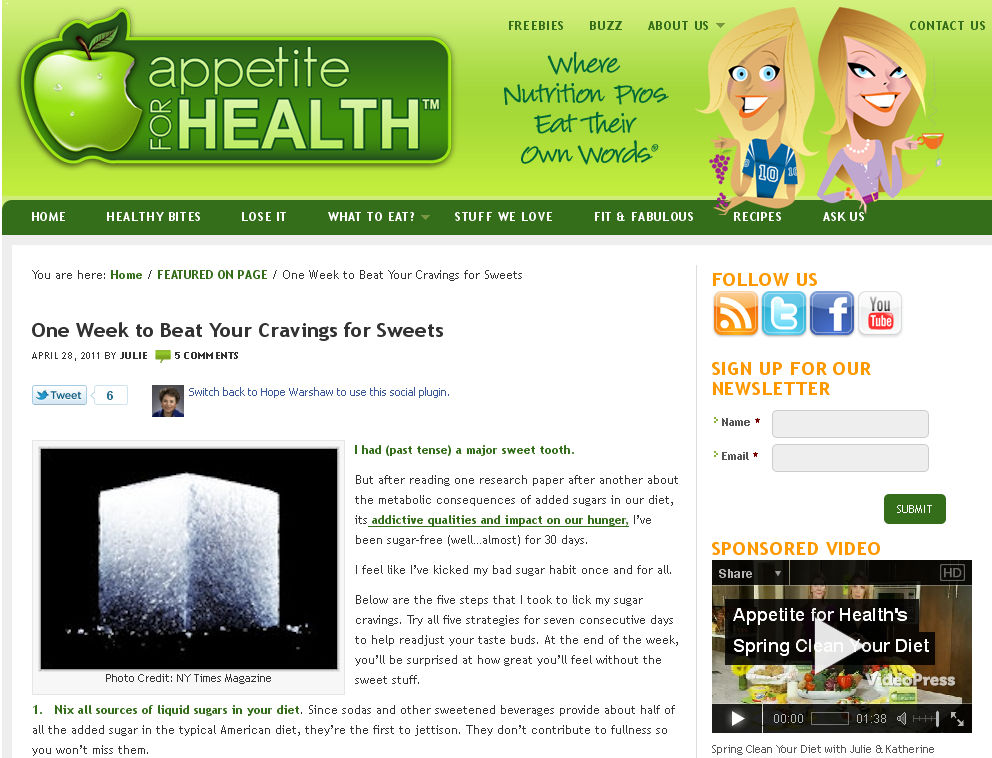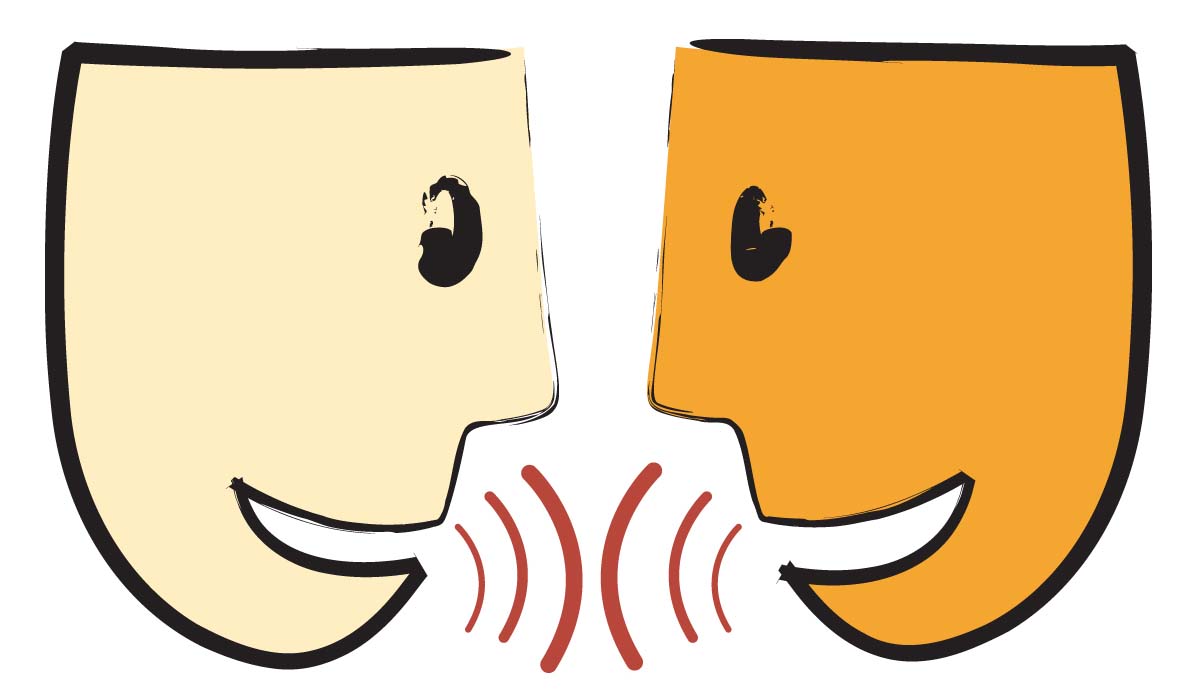Recaps of American Diabetes Association Meeting, 2012
In late June I attended the 2011 American Diabetes Association's Scientific Sessions (meeting). As usual, a fascinating learning experience. Over the years this meeting has become one that attracts scientists and health care providers from all over the world. Many stimulating and thought provoking meetings go on as well as an opportunity to explore new products and resources in a chock-full exhibit hall.
Rather than recreating additional recaps of this meeting, I'm pointing you to two detailed debriefs I've wrote for PRESENTdiabetes.com, the online continuing education community for healthcare professionals for which I'm the nutrition section editor:
Book Review: Go unDiet by Gloria Tsang, RD
This is one in a series of book reviews. You may find these books beneficial if you: manage prediabetes or diabetes, follow a diabetes meal plan and/or try to eat healthy to live well. These book reviews also appear on amazon.com. The books I’ve reviewed here can be found in my amazon a-store. Please check them out and consider a purchase.
 Go unDiet – a catchy, succinct title. But what’s inside this book, which on the cover promises 50 Small Actions for Lasting Weight Loss? Cut to the chase, easy-to-digest, common-sense tips to get away from “dieting” and on to slowly changing your eating habits towards healthy – once and for all. The author, Gloria Tsang, RD is a well respected dietitian, Founder and Editor-in-Chief of the popular online nutrition website HealthCastle.com.
Go unDiet – a catchy, succinct title. But what’s inside this book, which on the cover promises 50 Small Actions for Lasting Weight Loss? Cut to the chase, easy-to-digest, common-sense tips to get away from “dieting” and on to slowly changing your eating habits towards healthy – once and for all. The author, Gloria Tsang, RD is a well respected dietitian, Founder and Editor-in-Chief of the popular online nutrition website HealthCastle.com.
Tsang and I agree on a lot, particularly unDiet’s basic premises, she says:
Dialoging about Diabetes: PWD Offer Ways to Improve Communication and Care - #3 Haidee Merritt
 As a diabetes educator/healthcare provider (DHCP) I’m observing that the rapidly growing world of online diabetes social networks is helping people with diabetes (PWD) find support and feel supported. People are connecting, building relationships and feeling more positive about their diabetes. I’m delighted to see this trend!
As a diabetes educator/healthcare provider (DHCP) I’m observing that the rapidly growing world of online diabetes social networks is helping people with diabetes (PWD) find support and feel supported. People are connecting, building relationships and feeling more positive about their diabetes. I’m delighted to see this trend!
As a DHCP I’ve long realized I can’t walk a mile in a PWD shoes. I can’t know what it is like day in, day out to deal with this challenging and relentless disease. But, what I do know is that we can learn from each other to change the dialog between providers and PWD to be more positive, more supportive. In my Dialoging about Diabetes blogs I’ll interview diabetes activists and social networkers and ask them to offer ways DHCPs can change our ways to better support PWDs diabetes care efforts and make living your real life…just a bit easier.
Carbohydrate, Protein and Fat: Is the Question Quantity or Quality?
 On June 2, 2011 the food pyramid was put to rest and the simple, straightforward plate was introduced as the new icon for healthy eating. While I'm pleased with this new colorful, simplified food icon, I by no means think it will put a halt to nutrition debates, including these two questions:
On June 2, 2011 the food pyramid was put to rest and the simple, straightforward plate was introduced as the new icon for healthy eating. While I'm pleased with this new colorful, simplified food icon, I by no means think it will put a halt to nutrition debates, including these two questions:
- What percent of calories from carbohydrate, protein and/or fat should we eat?
- Is it healthier or better for managing blood glucose or fat levels to eat more or less: carbohydrate, protein or fat?
These questions, in my humble opinion, have and continue to receive too many research dollars and too much media (and thus, consumer) attention.
Please hear me out...
We seem fixated on the quantity questions regarding our, so-called macronutrients – our main sources of calories (that’s carbohydrate, protein and fat). Yet the research to date as well as the recommendations from respected bodies, such as Institute of Medicine and the Dietary Guidelines for Americans Advisory Committee Report, proves out a few stark realities. I’ll delve into these here and detail why our focus should be squarely on the quality of carbohydrate, protein and fat we eat, not the quantity.
No Need to Delete Sugars and Sweets
 This guest blog was written on request for appforhealth.com in response to Julie's blog A Week to Beat Your Cravings for Sweets. I want to thank Julie for being open to dialoging about key nutrition topics:
This guest blog was written on request for appforhealth.com in response to Julie's blog A Week to Beat Your Cravings for Sweets. I want to thank Julie for being open to dialoging about key nutrition topics:
Can people be “sugar addicted”? Not likely! But are we slurping, sipping and chewing too much sugar? Absolutely!
American Heart Association research shows that as of 2009 Americans down, on average, 22 teaspoons of sugar per day (Dietary sugars intake and cardiovascular health. (Not surprising when one 20 ounce soft drink contains 15 teaspoons!)
Dialoging about Diabetes: PWD Offer Ways to Improve Communication and Care - #2 Phil Southerland (TeamType1)
 As a diabetes educator/healthcare provider (DHCP) I’m observing that the rapidly growing world of online diabetes social networks is helping people with diabetes (PWD) find support and feel supported. People are connecting, building relationships and feeling more positive about their diabetes. I’m delighted to see this trend!
As a diabetes educator/healthcare provider (DHCP) I’m observing that the rapidly growing world of online diabetes social networks is helping people with diabetes (PWD) find support and feel supported. People are connecting, building relationships and feeling more positive about their diabetes. I’m delighted to see this trend!
As a DHCP I’ve long realized I can’t walk a mile in a PWD shoes. I can’t know what it is like day in, day out to deal with this challenging and relentless disease. But, what I do know is that we can learn from each other to change the dialog between providers and PWD to be more positive, more supportive. In my Dialoging about Diabetes blogs I’ll interview diabetes activists and social networkers and ask them to offer ways DHCPs can change our ways to better support PWDs diabetes care efforts and make living your real life…just a bit easier.
Book Review: Not Dead Yet by Phil Southerland and John Hanc
This is one in a series of book reviews. You may find these books beneficial if you: manage prediabetes or diabetes, follow a diabetes meal plan and/or try to eat healthy to live well. These book reviews also appear on amazon.com and the books can be found in my amazon a-store. Please check them out and consider a purchase.
Type 2 Diabetes: From Old Dogmas to New Realities – Part 2
Suffice to say, dramatic changes have occurred in our understanding of the onset and progression of prediabetes over the last decade. Lightening speed changes have also occurred regarding the therapies available to achieve optimal blood glucose control.
However, even with all of this change many old dogmas hang on. It’s time to be aware of the new realities. Here I’ve focused on two common old dogmas and the new realities.
Type 2 Diabetes: From Old Dogmas to New Realities – Part 1
Suffice to say, dramatic changes have occurred in our understanding of the onset and progression of prediabetes over the last decade. Lightening speed changes have also occurred regarding the therapies available to achieve optimal blood glucose control.
However, even with all of this change many old dogmas hang on. It’s time to be aware of the new realities. Here I’ve focused on two common old dogmas and the new realities.
Look at What the Look AHEAD Study Reveals
 We all know the Henny Youngman line: “I don’t get no respect.” This line rings true regarding research on the effectiveness of healthy lifestyle changes (eg: behavior changes for healthy eating and physical activity) to prevent or treat diseases – among diseases impacted: prediabetes and type 2. Yet the impressive role of lifestyle changes (along with a hefty among of expert-led support) in preventing or delaying type 2 or slowing the progression of type 2 has and continues to be reinforced by research studies over and over again. These results, however, don’t seem to have the media sizzle to attract headlines like the studies of costly drug therapies (to name one, the famed diabetes ACCORD Trial). So the public continues to have their tax dollars spent on these lifestyle-fcoused studies without quickly hearing about their findings.
We all know the Henny Youngman line: “I don’t get no respect.” This line rings true regarding research on the effectiveness of healthy lifestyle changes (eg: behavior changes for healthy eating and physical activity) to prevent or treat diseases – among diseases impacted: prediabetes and type 2. Yet the impressive role of lifestyle changes (along with a hefty among of expert-led support) in preventing or delaying type 2 or slowing the progression of type 2 has and continues to be reinforced by research studies over and over again. These results, however, don’t seem to have the media sizzle to attract headlines like the studies of costly drug therapies (to name one, the famed diabetes ACCORD Trial). So the public continues to have their tax dollars spent on these lifestyle-fcoused studies without quickly hearing about their findings.

